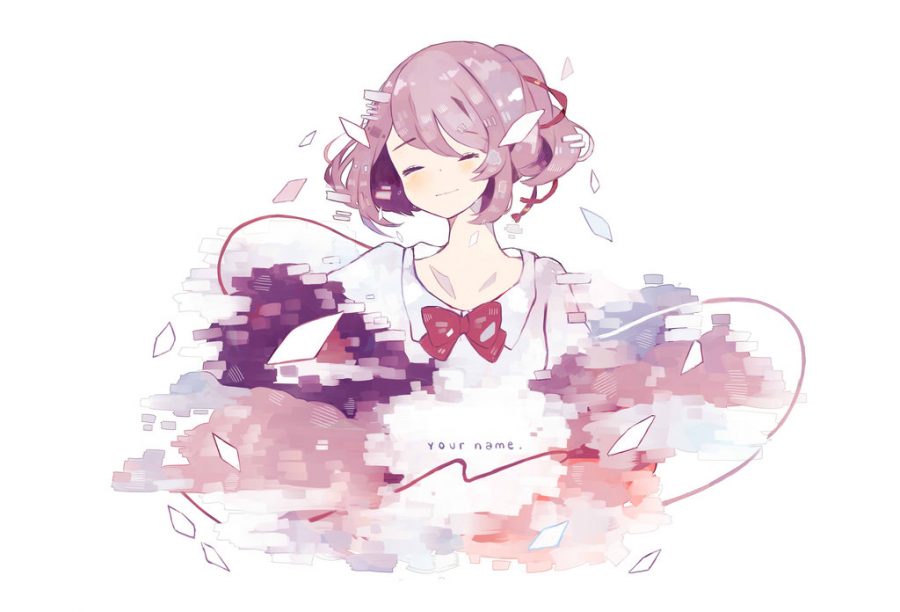“What is ‘Your Name’?”
Fanart of the movie “Your Name” featuring female lead Mitsuha Miyamizu. Art courtesy of shelliihe via DeviantArt.
April 19, 2017
WARNING: There are possible spoilers in this review.
The teenage years are filled with emotions heightened to a level that makes even ordinary life feel unbearable at times. Yet it is also one of the most beautiful periods of life, full of indescribable yearning and longing for connection, something Makoto Shinkai always has a lot to say about, as evidenced by his newest work Your Name whose two leads are high schoolers Mitsuha Miyamizu and Taki Tachibana.
While the main characters Mitsuha and Taki’s melancholy stems from a more complex place than just teenage hormones, their fears of embarrassment do not, and neither does their simultaneously curious and disgusted reactions when they suddenly wake up in a body of the opposite sex. While there is some classic body swap humor, it never takes center stage as the emphasis is on the reactions of friends and colleagues while the film establishes their different everyday realities. When the first prolonged switch finally occurs, viewers have enough information about the characters’ quirks that they are in on the joke, making the changes in body language and voice acting more rewarding to watch than the more obvious slapstick.
One of Shinkai’s strengths is his production designs, particularly his trademark detailed backgrounds, which evoke a particular wistful sense of melancholy. From the sunlight sparkling on towering Tokyo skyscrapers to the lively yet peaceful autumn colors of the mountains, the worlds these characters inhabit are so vivid that it feels possible to reach out and touch the falling leaves. It’s a gratifying experience to see these artistic and technical merits integrated into the plot, enriching immersion instead of simply showing off skill. Where the play of light and shadows on the autumn landscapes offers a marvelous taste of Shinkai’s photorealism, the arrival of the comet turns the skies into a glowing painting almost too beautiful to feel real, creating a dreamlike atmosphere befitting the heightened emotions of this pivotal moment and the people experiencing it.
It’s in the third act where the balance between sentimentality and lighthearted playfulness comes to fruition, keeping the sense of melancholy from descending into all-out melodrama. When Taki and Mitsuha learn about the threads, both literal and metaphorical, binding them together, the emotional climax becomes theirs alone. Although the action does go somewhat overboard – and perhaps even unbelievable – in the final half hour, the adventure works thanks to the connection that’s already developed between the main characters. Their investment in each other, at first reluctant and born of necessity, makes the ties they share as tangible as Shinkai’s landscapes. Viewers can care about them more because they care about each other.
“Wherever you are in this world, I will search for you.” While this quote might have been taken from any of Shinkai’s previous films, Your Name excels as a variation on his familiar themes because it delivers just as much on the narrative front as it does on the message. That yearning for connection is a powerful and universal theme, made even more powerful by the notion of finding oneself through such a connection.






![A group of juniors play “Clash Royale” on their phones during lunch. Lunch is the only time when phones are allowed to be out. “I think once we adapt to it, it's not going to be something we miss because [for] everyone moving forward, that'll have been the policy [since] middle school,” DNA science and biology teacher Aubrie Holman said.](https://www.tjtoday.org/wp-content/uploads/2025/09/IMG_6621-2-e1758016994220-300x239.jpeg)